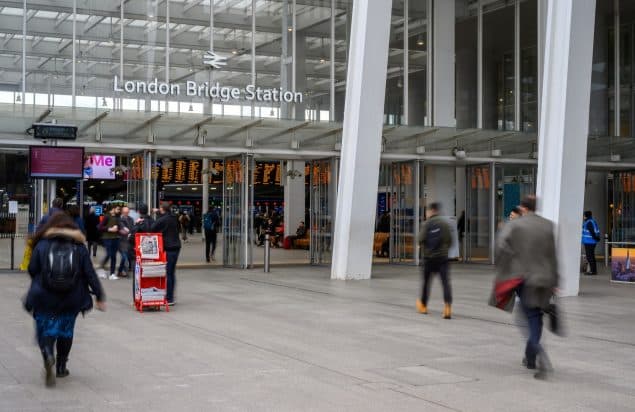Home » Business News • UK Employment news » Rail Strikes To Disrupt Southeast England Commutes
Rail Strikes To Disrupt Southeast England Commutes
https://www.whatjobs.com/news/united-kingdom/uk-employment-news/rail-strikes-to-disrupt-southeast-england-commutes

By Nithya Bose in Business News, posted May 8, 2024

Train services across southeast England, including key commuter routes into London, will be largely suspended on Tuesday as train drivers start fresh strikes over pay.
The strikes, organised by drivers in the Aslef union, will occur at each English rail operator until Thursday, May 9.
A week-long nationwide overtime ban that began on Monday is exacerbating disruptions, affecting train schedules nationwide.
Passengers are advised to check their travel plans, as most operators will not run trains on their designated strike days.
This will impact some services extending into Wales and Scotland later in the week.
Tuesday's strike will halt all services on several lines, including c2c, Great Northern, and Gatwick Express, significantly affecting commuters heading into the capital.
On Wednesday, May 8, the strike will continue to disrupt many long-distance routes.
No service is expected on lines operated by Avanti West Coast, Chiltern Railways, CrossCountry, East Midlands Railway, Great Western Railway, and West Midlands Trains, except for a very limited service by GWR.
The Heathrow Express will also reduce its schedule by half, although Elizabeth line services to the airport will operate.
By Thursday, the impact will spread to northern England, where there are no Northern or TransPennine Express services and only a limited service on LNER, which connects London with the northeast of England and Scotland.
Need Career Advice? Get employment skills advice at all levels of your career
This week's actions mark the fourth wave of rolling strikes initiated by Aslef since December, following a dispute that has persisted for nearly two years.
The union said some members have not received a pay raise in five years.
Negotiations with the Rail Delivery Group (RDG) stalled last year after the union rejected what it described as a “risible” pay offer.
Although the RDG has recently reached out to resume discussions, the government has indicated a reluctance to renegotiate pay terms.
Aslef's general secretary, Mick Whelan, said the strikes are necessary to advocate for fair compensation, citing government actions that undermine the industry and its workers.
The RDG warned that the ongoing strikes would further damage the railway sector, which relies on significant state subsidies following reduced revenues during the COVID-19 pandemic.
Follow us on YouTube, X, LinkedIn, and Facebook











